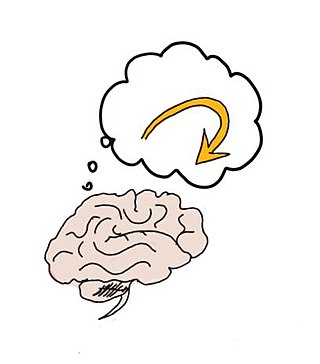Cognitive psychology is the scientific study of mental processes such as attention, language use, memory, perception, problem solving, creativity, and reasoning. Cognitive psychology originated in the 1960s in a break from behaviorism, which held from the 1920s to 1950s that unobservable mental processes were outside the realm of empirical science. This break came as researchers in linguistics and cybernetics, as well as applied psychology, used models of mental processing to explain human behavior. Work derived from cognitive psychology was integrated into other branches of psychology and various other modern disciplines like cognitive science, linguistics, and [[economics

An intelligence quotient (IQ) is a total score derived from a set of standardized tests or subtests designed to assess human intelligence. Originally, IQ was a score obtained by dividing a person's mental age score, obtained by administering an intelligence test, by the person's chronological age, both expressed in terms of years and months. The resulting fraction (quotient) was multiplied by 100 to obtain the IQ score. For modern IQ tests, the raw score is transformed to a normal distribution with mean 100 and standard deviation 15. This results in approximately two-thirds of the population scoring between IQ 85 and IQ 115 and about 2 percent each above 130 and below 70.

A polymath or polyhistor is an individual whose knowledge spans many different subjects, known to draw on complex bodies of knowledge to solve specific problems.

Cognition is the "mental action or process of acquiring knowledge and understanding through thought, experience, and the senses". It encompasses all aspects of intellectual functions and processes such as: perception, attention, thought, imagination, intelligence, the formation of knowledge, memory and working memory, judgment and evaluation, reasoning and computation, problem-solving and decision-making, comprehension and production of language. Cognitive processes use existing knowledge to discover new knowledge.

Creativity is the ability to form novel and valuable ideas or works using your imagination. Products of creativity may be intangible or a physical object. Creativity may also describe the ability to find new solutions to problems, or new methods of performing a task or reaching a goal. Creativity, therefore, enables people to solve problems in new or innovative ways.
The g factor is a construct developed in psychometric investigations of cognitive abilities and human intelligence. It is a variable that summarizes positive correlations among different cognitive tasks, reflecting the fact that an individual's performance on one type of cognitive task tends to be comparable to that person's performance on other kinds of cognitive tasks. The g factor typically accounts for 40 to 50 percent of the between-individual performance differences on a given cognitive test, and composite scores based on many tests are frequently regarded as estimates of individuals' standing on the g factor. The terms IQ, general intelligence, general cognitive ability, general mental ability, and simply intelligence are often used interchangeably to refer to this common core shared by cognitive tests. However, the g factor itself is a mathematical construct indicating the level of observed correlation between cognitive tasks. The measured value of this construct depends on the cognitive tasks that are used, and little is known about the underlying causes of the observed correlations.
Intellectual giftedness is an intellectual ability significantly higher than average. It is a characteristic of children, variously defined, that motivates differences in school programming. It is thought to persist as a trait into adult life, with various consequences studied in longitudinal studies of giftedness over the last century. These consequences sometimes include stigmatizing and social exclusion. There is no generally agreed definition of giftedness for either children or adults, but most school placement decisions and most longitudinal studies over the course of individual lives have followed people with IQs in the top 2.5 percent of the population—that is, IQs above 130. Definitions of giftedness also vary across cultures.

Robert J. Sternberg is an American psychologist and psychometrician. He is a Professor of Human Development at Cornell University.

Links between creativity and mental health have been extensively discussed and studied by psychologists and other researchers for centuries. Parallels can be drawn to connect creativity to major mental disorders including bipolar disorder, autism, schizophrenia, major depressive disorder, anxiety disorder, OCD and ADHD. For example, studies have demonstrated correlations between creative occupations and people living with mental illness. There are cases that support the idea that mental illness can aid in creativity, but it is also generally agreed that mental illness does not have to be present for creativity to exist.
Theoretical psychology is concerned with theoretical and philosophical aspects of psychology. It is an interdisciplinary field with a wide scope of study.
Insight is the understanding of a specific cause and effect within a particular context. The term insight can have several related meanings:

Metacognition is an awareness of one's thought processes and an understanding of the patterns behind them. The term comes from the root word meta, meaning "beyond", or "on top of". Metacognition can take many forms, such as reflecting on one's ways of thinking, and knowing when and how oneself and others use particular strategies for problem-solving. There are generally two components of metacognition: (1) cognitive conceptions and (2) cognitive regulation system. Research has shown that both components of metacognition play key roles in metaconceptual knowledge and learning. Metamemory, defined as knowing about memory and mnemonic strategies, is an important aspect of metacognition.

The Sylvia Plath effect is the phenomenon that poets are more susceptible to mental illness than other creative writers. The term was coined in 2001 by psychologist James C. Kaufman, and implications and possibilities for future research are discussed. The effect is named after author Sylvia Plath, who died by suicide at the age of 30.
Ellis Paul Torrance was an American psychologist best known for his research in creativity.
Jonathan Plucker is the Julian C. Stanley Professor of Talent Development at Johns Hopkins University, where he works in the School of Education and the Center for Talented Youth. He previously served as Raymond Neag Endowed Professor of Education at the University of Connecticut and as a professor of educational psychology and cognitive science at Indiana University. A scholar of creativity, intelligence, and education policy, he is the author of over 200 papers and author or editor of four books: Critical Issues and Practices in Gifted Education with Carolyn Callahan, Essentials of Creativity Assessment with James Kaufman and John Baer, and Intelligence 101 with Amber Esping. Plucker has also led the development of a popular web site on human intelligence. He was the 2007-2008 president of the American Psychological Association's Society for the Psychology of Aesthetics, Creativity, and the Arts.

Scott Barry Kaufman is an American cognitive scientist, author, podcaster, coach, and popular science writer. His writing and research focuses on intelligence, creativity, and human potential. Most media attention has focused on Kaufman's attempt to redefine intelligence. Kaufman is founder and director of the Center for Human Potential and has taught courses at Columbia, NYU, the University of Pennsylvania, and elsewhere.
The following outline is provided as an overview of and topical guide to human intelligence:
John Baer is a professor of Educational Psychology at Rider University in New Jersey. He earned his B.A. from Yale University and his Ph.D. in cognitive and developmental psychology from Rutgers University.

Dean Keith Simonton is a Distinguished Professor Emeritus based in Davis, California, affiliated with the Department of Psychology at the University of California, Davis. Simonton is known for his research in the fields of genius, creativity, leadership, and aesthetics. His work focus into the cognitive, personal, developmental, social, and cultural factors contributing to eminence, giftedness, and talent across various domains such as science, philosophy, literature, music, art, cinema, politics, and war.
Gregory John Feist is an American psychologist and Professor of Psychology at San Jose State University. He has published in the psychology of creativity, personality, psychology of science, motivated reasoning, the psychology of science, and the development of scientific talent.









